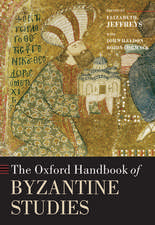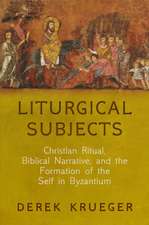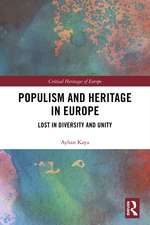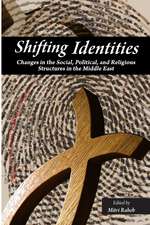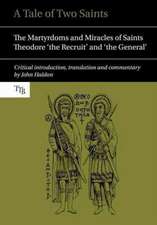The Empire That Would Not Die – The Paradox of Eastern Roman Survival, 640–740: Carl Newell Jackson Lectures
Autor John Haldonen Limba Engleză Hardback – 8 iun 2016
Preț: 331.58 lei
Nou
63.47€ • 68.96$ • 53.35£
Carte disponibilă
Livrare economică 31 martie-14 aprilie
Livrare express 14-20 martie pentru 49.10 lei
Specificații
ISBN-10: 0674088778
Pagini: 432
Dimensiuni: 162 x 244 x 37 mm
Greutate: 0.77 kg
Editura: Harvard University Press
Seria Carl Newell Jackson Lectures
Descriere
The eastern Roman Empire was the largest state in western Eurasia in the sixth century. Only a century later, it was a fraction of its former size. Surrounded by enemies, ravaged by warfare and disease, the empire seemed destined to collapse.
Yet it did not die. In this holistic analysis, John Haldon elucidates the factors that allowed the empire to survive against all odds into the eighth century. By 700 CE, three-quarters of the empire's territory had been lost to the Islamic Caliphate.
But the rugged territories of Anatolia and the Aegean held strategic advantages, preventing enemies from permanently occupying imperial towns and cities while leaving them vulnerable to Roman counterattacks. The more the empire shrank, the more it became centered around Constantinople, whose ability to withstand siege after siege proved decisive. The crisis forced the imperial court, the provincial ruling classes, and the church closer together.
State and church together embodied a sacralized empire that held the emperor, not the patriarch, as Christendom's symbolic head. Despite territorial losses, what remained became the heartland of a medieval Christian Roman state, with a powerful political theology that predicted the emperor would eventually establish Orthodox Christianity's world dominion.








